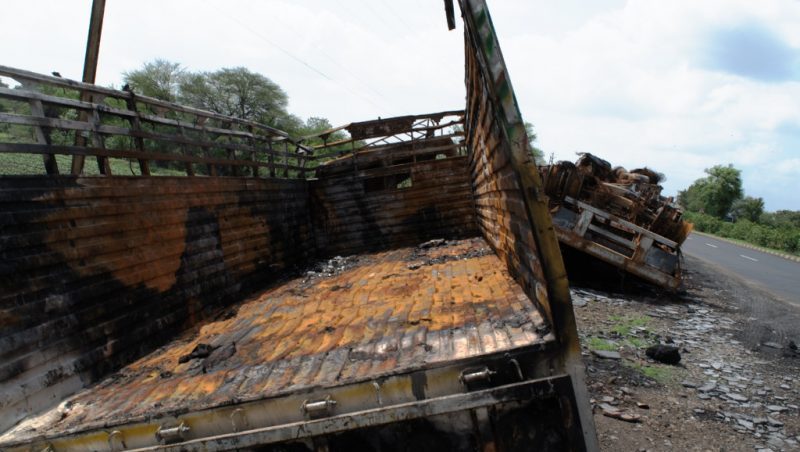Six farmers were killed when protests turned ugly in Mandsaur district, Madhya Pradesh, India last month.
This was the latest flare-up in an ongoing crisis that has driven thousands of farmers to suicide.
In an unmissable bit of reporting, Huizhong Wu interviewed some of the grieving relatives and examined the role of erratic weather in their desperate situation.
It illustrates how climate change – in messy combination with poverty and weak institutions – can foment instability and violence.
While politicians offer only short-term fixes, there is hope in technology that helps farmers make smarter choices and a younger generation determined to do better than their parents.
Tensions along the Nile
Egypt should take note. In the lower reaches of the Nile, Aya Nader found farmers are already experiencing water scarcity as a result of population pressure and global warming. Their problems are about to get worse.
Upriver, Ethiopia is starting to store water behind its 6GW mega-dam, which is expected to cut the flow by up to a quarter while the reservoir fills.
With little information to guide them, Egyptian farmers are gripped by paranoid rumours and fantasies of bombing their neighbour’s prized bit of infrastructure.
Amnesty on forest-destroyers
Brazil is extending a generous amnesty to illegal occupants of Amazon land, under legislation signed by embattled president Michel Temer last week.
On top of that, just weeks after Temer vetoed a bill to roll back protections in Jamanxim National Forest, he sent to Congress a draft law that is only slightly less damaging – cutting the conservation area by 27% instead of 37%.
The moves may win Temer the support of the “beef lobby” in his bid to avoid a Supreme Court trial for corruption. But they are devastating for the rainforest, environmentalists warn, rewarding criminals and perpetuating a cycle of destruction.
Congo controversy
In the world’s second-largest rainforest, a proposed sustainable forestry project has come under fire from green groups who say it will lead to an increase in industrial logging.
Greenpeace, Global Witness and the Rainforest Foundation are lobbying the French and Norwegian governments to end their involvement in the scheme.
But its prospective funders argue environmentalists have misrepresented the situation and logging can co-exist with ecosystem protection in the Democratic Republic of Congo.
Climate conversations
- Fiji presidency must not fail climate change victims at “Pacific COP” – Makareta Waqavonovono and Julie-Anne Richards
Make in India?
When India’s National Solar Mission was launched in 2010, it aimed to boost domestic manufacturing. It hasn’t worked out that way, Sapna Gopal reports – Indian suppliers are not competitive with China.
The end of a protectionist policy in December, following a World Trade Organization ruling, will be the nail in the coffin for many companies, experts say.
EV dominance
Just as China dominates the solar panel market, it is leading the charge for electric vehicles. In that light, Chinese-owned Volvo’s surprise announcement it will phase out traditional cars by 2019 makes perfect sense, writes Catherine Early.
“It’s an early announcement of what most car makers will be doing in the next ten years,” said Julia Hildermeier of campaign group Transport and Environment.
